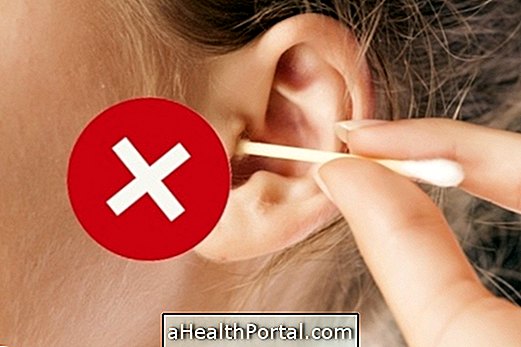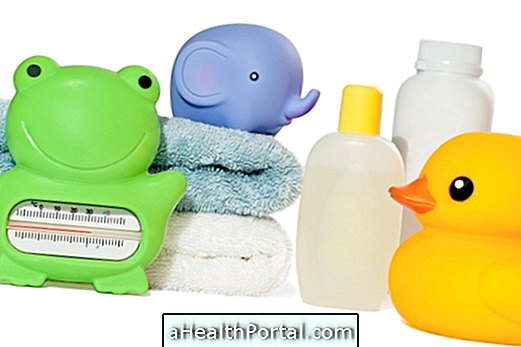The accumulation of wax can block the ear canal, giving a blocked ear sensation and difficulty hearing. Therefore, to prevent this from happening, it is important to keep your ears always clean.
However, it is not recommended to clean the ears with a cotton swab or other pointed object, such as the pen cap or paper clip, for example, because they can push the wax more deeply or even break the eardrum.

So, the best strategies to keep the ear always clean are:
1. Pass the corner of the towel or wet cotton disc
After bathing, you can wipe the corner of a wet towel or a damp cotton disc around the ear, as this will remove the dirt accumulated on the outside of the ear, safely;
2. Use the swab only on the outside of the ear
The swab should only be used on the outside of the ear and should never be inserted into the ear canal. There are also baby swabs that prevent the swab from entering the ear canal, just to clean the surface.
3. Drip 2 drops of Johnson oil or almond oil into the ear
If the person has a lot of accumulated wax, to soften it can drip 2 drops of Johnson or almond oil and then with a syringe throw a little saline inside the ear and turn the head sideways, so that the liquid leaves completely and not infection.
4. Use a product called Cerumin
The Cerumin is a product that softens the wax, facilitating its removal. Learn how to use cerumin to remove ear wax.
5. Wear an ear plug
You should also wear ear plugs when going to the beach, waterfall or pool, so there is no water in between to prevent infections.
Another way to avoid ear infections is to keep the nose properly clean and free of secretions because the nose and ear attach internally and is often the accumulation of phlegm in the airways that causes ear infections after a episode of cold, for example.
To eliminate maximum nasal secretion, cleansing can be done using a 10 mL syringe to introduce saline, which will flow out through the other nostril. See the step by step nasal lavage.

Signs of ear infection
In some cases, wax accumulated in the ear canal can cause infection, and in this case, symptoms that may arise include:
- Covered ear sensation;
- Earache;
- Fever;
- Itching in the ear;
- Bad smell in the ear if pus is involved;
- Decreased hearing;
- Sensation of dizziness or vertigo.
When these symptoms are present, it is recommended to go to the doctor so that he can examine the ear internally with a small device called an otoscope, which can even see the eardrum.
In case of infection, the doctor may indicate the use of antibiotics to deflate the ear canal and fight the infection, and it is necessary to use the medication for a period of time determined by the doctor, so that the situation is really solved, otherwise there will be only an improvement of the symptoms and in a few weeks the ear infection will again manifest itself and may endanger the hearing.

























